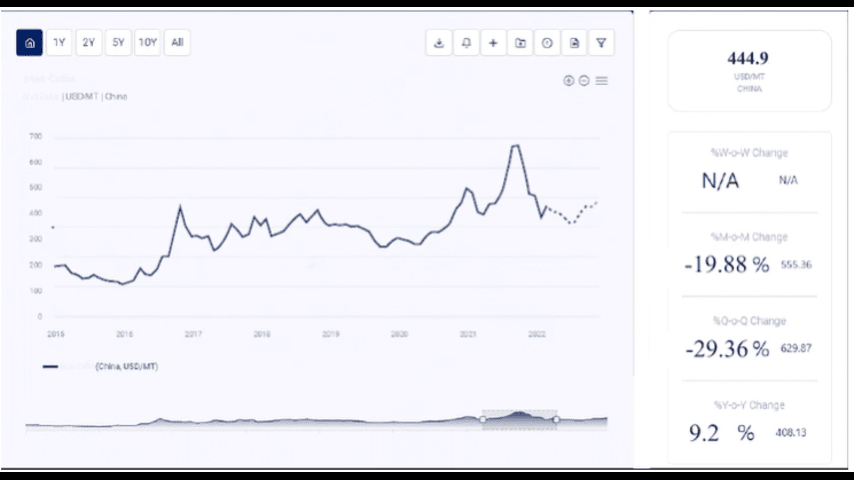As educational institutions grow in size and complexity, managing their day-to-day operations can become increasingly challenging. From tracking student data to managing resources, administrative tasks are both essential and time-consuming. Enter the Campus Management System (CMS) – a comprehensive software solution designed to automate and streamline campus operations, making it easier for administrators, faculty, and students to focus on what truly matters: education.
What is a Campus Management System?
A Campus Management System (CMS) is an integrated software solution that manages the academic and administrative functions of educational institutions. With modules that cover everything from admissions and attendance tracking to financial management and student information systems, CMS is a one-stop solution for simplifying and optimizing campus operations. It provides a centralized platform for administrators, faculty, and students, ensuring that all data and processes are accessible, secure, and streamlined.
Key Features of a Campus Management System
The strength of a Campus Management System lies in its wide range of features, tailored to meet the specific needs of educational institutions. Some of the key features include:
-
Admissions Management: CMS automates the entire admissions process, from application submission to selection. This includes online application forms, document management, and communication with applicants. An automated admissions process reduces the burden on staff and improves efficiency.
-
Student Information System (SIS): This feature stores and manages comprehensive student data, including personal details, academic history, attendance records, and disciplinary actions. Having a centralized database of student information helps institutions track and access information quickly.
-
Attendance Tracking: With digital attendance tracking, faculty can record and monitor student attendance, making the process faster and reducing the likelihood of errors. Students and parents can also access attendance records, ensuring transparency.
-
Fee and Financial Management: CMS includes modules to handle financial transactions, track fee payments, and generate invoices. Institutions can automate billing and collection processes, reducing manual workload and minimizing errors in financial records.
-
Timetable and Scheduling: CMS helps institutions create and manage timetables for classes, exams, and extracurricular activities. This feature allows for effective scheduling of classes and rooms, ensuring efficient use of resources and avoiding conflicts.
-
Library Management: The system can integrate with library databases, allowing students and faculty to access and reserve books and other resources online. This simplifies library management and encourages a culture of learning.
-
Exam and Result Management: CMS streamlines the examination process, from setting up exams to marking and releasing results. It ensures secure exam scheduling and grading while providing students with timely access to their results.
-
Communication and Notifications: A CMS enables institutions to send automated notifications to students, parents, and staff. This includes reminders for assignments, exams, and events, ensuring everyone stays informed and connected.
-
Human Resource Management: CMS also includes HR functionalities, such as staff records, payroll management, and performance evaluation. This feature helps institutions manage their staff efficiently and ensures a smooth HR process.
-
Reporting and Analytics: A CMS generates data-driven insights that help institutions make informed decisions. With analytics on student performance, attendance, finances, and resource allocation, administrators can continuously improve operations and identify areas for growth.
Benefits of a Campus Management System
Implementing a Campus Management System offers numerous benefits to educational institutions. Here are some of the most impactful advantages:
-
Enhanced Efficiency and Productivity: By automating administrative tasks, CMS significantly reduces the workload on staff, allowing them to focus on higher-priority activities. This improves productivity and reduces errors.
-
Centralized Data Management: With a CMS, all essential data – from student records to financial details – is stored in one place. This allows easy access and retrieval of information, fostering better data management and decision-making.
-
Improved Communication: CMS improves communication between the institution, students, and parents by providing a central platform for updates, notifications, and information sharing. Automated notifications and reminders ensure that all stakeholders are on the same page.
-
Cost Savings: By automating processes and reducing the need for paper-based documentation, CMS helps institutions cut down on costs. Additionally, efficient resource management ensures optimal utilization of available resources.
-
Enhanced Student Experience: A CMS allows students to access their schedules, grades, attendance, and financial details online. This transparency and accessibility enhance the overall student experience and engagement.
-
Data Security and Privacy: CMS solutions come with robust security protocols to protect sensitive data. With secure access control and data encryption, institutions can ensure the privacy of student and staff information.
-
Scalability and Customization: A CMS can be customized to meet the specific needs of an institution. It can also scale as the institution grows, making it a long-term solution that adapts to the changing demands of campus operations.
Challenges in Implementing a Campus Management System
While the benefits of a CMS are clear, institutions may face certain challenges during implementation:
-
High Initial Costs: Implementing a CMS requires a significant initial investment. However, the long-term savings and efficiency gains often outweigh these costs.
-
Technical Training and Adaptation: Faculty and staff may require training to adapt to the new system. Institutions must invest in user training to ensure a smooth transition and maximize the system’s benefits.
-
Data Migration: For institutions transitioning from paper-based systems, migrating data to a CMS can be time-consuming and complex. A well-planned migration strategy can mitigate this challenge.
-
Continuous Maintenance: A CMS requires regular updates and maintenance to ensure optimal performance. Institutions must be prepared for ongoing system maintenance and support costs.
The Future of Campus Management Systems
As technology continues to advance, Campus Management Systems will likely become more sophisticated. Integrations with artificial intelligence (AI) and machine learning (ML) could enable predictive analytics, providing insights into student success factors and optimizing campus resource allocation. Additionally, with the growing trend of online and hybrid learning, CMS solutions will evolve to better support virtual classrooms and remote management.
Conclusion
A Campus Management System is more than just software; it’s a strategic asset that enhances the operational efficiency of educational institutions. By automating administrative tasks, improving data accessibility, and enhancing communication, a CMS supports a well-organized and efficient campus environment. As institutions strive to offer high-quality education while managing resources effectively, adopting a CMS can play a crucial role in shaping the future of education.














